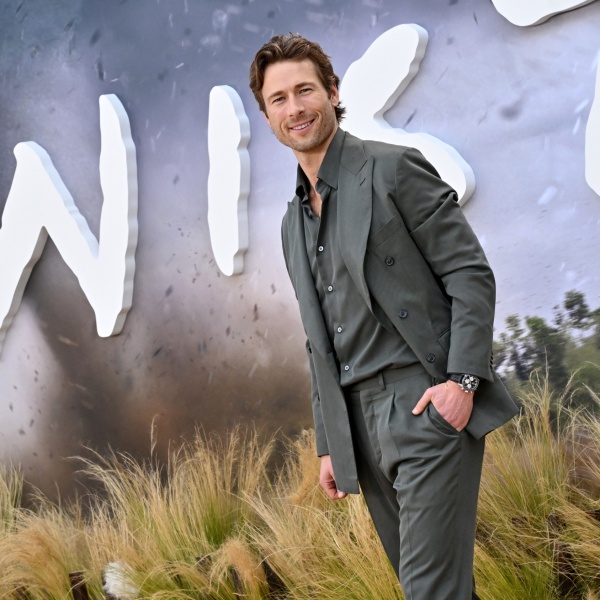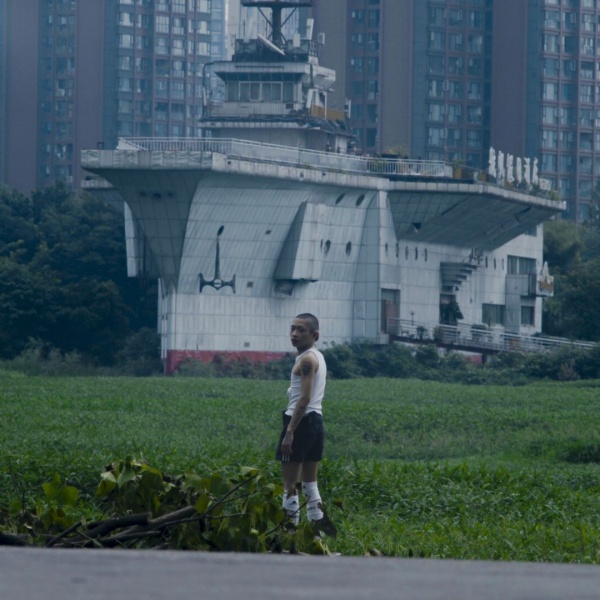Forgettable even by the impossibly low standards of a mid-budget Netflix action movie, Mouly Surya’s “Trigger Warning” might be a shade more colorful than colossal bores like “Red Notice” and “The Gray Man,” but this still-bland Jessica Alba vehicle is all the more frustrating because it doesn’t feel like some defanged summer blockbuster that was denied its true purpose by skipping past theaters. On the contrary, an R-rated, character-driven “First Blood” throwback about a Special Forces commando who returns from Syria to find her fading hometown in the grip of a high-powered arms dealer is precisely the kind of action movie that Netflix should be making.
To wit: It scratches an itch that more traditional studios won’t touch, allows a well-liked actress to get back in the game without having to carry a franchise on her shoulders, and does so at a scale that strikes a happy compromise between film and TV — at least in theory. But therein lies the rub. Beholden to neither Nielsen ratings nor box office numbers, “Trigger Warning” only exists to serve the needs of a streaming algorithm, which is just as well, as that streaming algorithm is the only audience this undercooked and utterly lifeless piece of streaming content could ever hope to satisfy.
Even the needlessly provocative title of this movie — which promises a degree of political confrontation that is all butabsent from the movie itself — feels like the byproduct of a culture that’s delegated its last traces of critical thinking and/or curatorial agency to the “For You” tabs of the world.
Which isn’t to say that “Trigger Warning” doesn’t gesture towards any sensitive topics. Alba’s Mexican-American supersoldier may not declare a clear affiliation for one party or another, but Parker doesn’t seem overly impressed by the super-vanilla Republican senator who lords over Creation, NM like a cartel boss, or by the anti-progressive campaign ads he pumps through the local radio station during the lead-up to his next election (Ezekiel Swann is played by a menacing but wildly under-used Anthony Michael Hall, doing what little he can to redeem ChatGPT-worthy scenes like the one where he grills Parker on the correct pronunciation of “Latinx”).
Maybe that’s because Parker doesn’t appreciate Swann’s way of making white Americans feel dangerously unsafe in their own country, a paranoia that’s leveraged to fuel the rampant militarization of small-town police forces that barely have the need for guns, let alone RPGs. Maybe it’s because she’s beginning to suspect that Swann had something to do with the recent mine shaft collapse that killed her father, a tragedy that forced her to come back home and settle the dead man’s affairs. Or maybe Parker’s lack of enthusiasm can simply be ascribed to the fact that Alba’s performance is so flat and stilted it makes Steven Seagal in “Hard to Kill” look like Eddie Redmayne in “Cabaret.”
Seemingly bored out of her mind in every scene where she isn’t slitting a bad guy’s throat, the likable “Dark Angel” actress — a capable action star who’s never lacked charisma in the past — appears to have confused Rambo-like stoicism with complete dissociation. One especially telling moment finds Alba delivering some dialogue with a gun to her head; it sounds exactly like all of her other lines.
Parker is obviously a cool customer, but it’s hard to accept her colder than death attitude as a genre affectation in a movie that takes itself this seriously. By the same token, it’s hard to enjoy Parker’s even-keeled emotionality in a movie that confronts the character with such a wide array of opportunities to express herself. If Parker has been numbed by her experience conducting (or committing) military “shenanigans” in the Middle East, it doesn’t stop her from getting all sentimental over her dad’s old bar. If her attachment to Creation and its people runs deep enough that she answers a phone call from her former prom date a few seconds after watching “Arabic Terrorist #1” get executed at point-blank range in the film’s opening sequence, that doesn’t stop her from treating him like a stranger when she gets home.
The complete lack of frisson between Parker and Jesse (Mark Webber) is made all the more inexplicable by the fact that Jesse also happens to be one of the senator’s two large adult sons (Jake Weary plays the more racist Elvis), as well as the police officer who’s investigating the death of Parker’s father. And while the script makes a half-hearted effort to explore the moral dilemma of a local cop torn between decency and corruption, there’s no way for that subplot to take root when it makes so little of an impression on the story’s protagonist.
The inadvertently hilarious scene in which that subplot resolves hinges on the clumsiest beat in an otherwise competently directed film, but it’s mishandled to a degree that calls extra attention to the AI-like ethos behind this entire enterprise; the movie’s numbing creative entropy can’t help but sting anew at the sight of a gifted director like Surya, whose “satay Western” “Marlina the Murderer in Four Acts” was Cannes standout in 2017, fumbling her way through an explosive character beat that feels like it was copy-pasted from an episode of “Walker, Texas Ranger.”
It’s an unexpected anomaly in a film where every shot feels like a first take, every scene feels like the least interesting version of what the story demands, and there’s altogether so little sense of place or personality that the final boss doesn’t even have a name. It’s the sort of gaffe that forces you to think about how we got here, an unfortunate self-own at the end of a Netflix movie that desperately hopes the next piece of content will start auto-playing before anyone can read the credits. When a streaming movie from a singular director turns out this generic, and when a script credited to a handful of brilliant writers — including “A History of Violence” scribe Josh Olson and “The Last of Us Part II” co-author Halley Gross — is this absent any trace of their unmistakable intelligence, the blame for its shortcomings must belong less to any of the artists involved than it does to the nature of the production that brought them together.
At some point along the way, the powers that be appear to have decided that “Trigger Warning” didn’t have to be good, it just had to be something that people might succumb to on a Friday night when they don’t have the energy to seek out something better; maybe sitting through almost two hours of tedium for the five seconds where Jessica Alba fends off a chainsaw-wielding bad guy in a hardware store isn’t such a bad deal when it’s baked into the cost of a monthly subscription fee (it’s the best action beat in a movie where all of them are serviceable but none of them leave a mark). It’s a good thing we’re all going to live forever.
If in theory this is the kind of action movie that Netflix should be making, in practice it’s the kind of action movie that shouldn’t have been made at all — not because the genre classics it’s riffing on were high art, but rather because stock-driven enshittification is a fate worse than death for proud schlock. To paraphrase something that Parker’s dad tells her in a throwaway flashback that feels inserted into the film at random: There’s no sense carrying a knife if you don’t bother to sharpen it first.
Grade: D+
“Trigger Warning” is now streaming on Netflix.






